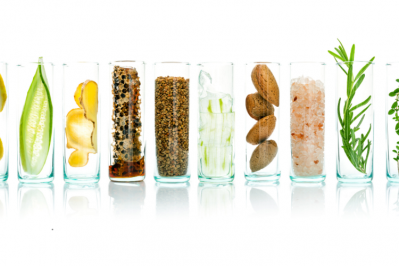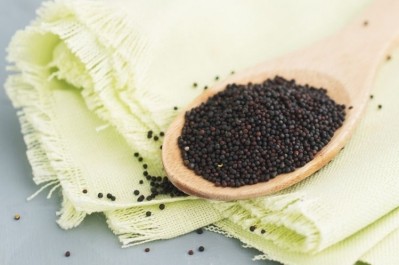‘A highly soluble, complete protein, with functional properties very close to whey protein…’ DSM gears up to launch upcycled canola protein isolate

Commissioning at the plant will begin in the next few weeks, Samah Garringer, VP protein for the future at DSM, told FoodNavigator-USA. “In the meantime, we have a pilot facility in Delft where we do all our application development and produce meaningful quantities to share with customers.”
Canola is a major oilseed crop, but also contains anything between 17-26% protein. However, developing solvent-free, economically viable ways of extracting the protein from the nutritious meal that’s left after oil crushing without denaturing the protein has been a challenge, said Garringer.
As such, canola meal has historically been used in lower-value markets such as animal feed, said Garringer, who has been working on bringing canola protein to market for several years (Burcon also spent years trying to commercialize canola protein before teaming up with Merit Functional Foods to bring products to market last year).
“The challenge was to get the right quality, to get the right yield, and to get to a commercially viable process, and that has taken time,” she explained.
“We do mild pressing at the beginning so we do not denature the protein, and we maintain the solubility, quality, and functionality of the protein. And then we use an aqueous, solvent-free process to extract the soluble fraction of the protein and we still leave insoluble protein in the byproduct, the fibrous meal that is still good for the animal feed market.”
Nutrition and functionality
From a nutritional perspective, DSM’s CanolaPRO isolate has an attractive amino acid profile, with a PDCAAS score of 1, a good DIAAS (protein quality and digestibility) score due to its high solubility and bioavailability (better than soy), with functionality very close to whey and egg protein, claimed Garringer.
“The key thing about CanolaPRO is that it is a soluble protein with functional properties very close to whey protein and it is a complete protein and non allergenic.”
It also has good foaming and emulsification capabilities, a light, tan color and neutral flavor that works well in combination with other proteins in a wide variety of applications from meat and dairy alternatives to high protein beverages, ready to mix proteins for sports nutrition and weight management, specialized nutrition, and protein bars, she said.
Meat alternatives
In meat alternatives, CanolaPRO works well in combination with pea protein (owing to its more premium price tag it would not be the only protein a plant-based burger for example, but delivers extra juiciness and functional qualities when combined with other proteins, for example).
“CanolaPRO is not a bulk protein,” stressed Garringer, who said it will be priced “below whey protein, but double pea protein… so it’s mostly going to be used in combination with other proteins to improve functionality and nutrition.”
She added: “If you want to make a plant-based burger with pea and canola proteins, for example, it will have a better mouthfeel, a better bite, and you'll have a juicier product, so we have developed texturized vegetable proteins with 80% pea protein and 20% canola protein.”
Owing to its solubility, CanolaPRO also works particularly well in beverages across a wide pH range, unlike some other plant proteins, she said.
According to its GRAS notice (to which the FDA has no objections), DSM’s canola protein isolate has a minimum protein level of 90%. To extract it, rapeseed press cake is mixed with an aqueous salt solution and the insoluble material is then removed by filtration or centrifugation. The pH of the remaining solution is adjusted with citric acid and ascorbic acid and the residual fat and precipitates are removed using a membrane filter press or centrifugation.
The resulting solution is then concentrated and washed using an ultrafiltration and diafiltration step. The filtration step concentrates the protein and removes potential impurities, including polyphenols, phytate, and glucosinolates. The protein is then spray dried.
‘We are not an ingredients supplier, we are a solutions provider’
Food brands are excited about CanolaPRO first and foremost for its nutritional, functional and sensory qualities, she said. But they also like the fact that it’s non-GMO, non-allergenic, and is upcycled from something (canola meal/cake) that’s currently a low-value product that goes into animal feed.
Asked how DSM’s canola protein stacks up against rivals’, Garringer said customers working with plant proteins are often looking for support on formulation, which DSM - as a large company with a broad portfolio of ingredients and years of applications expertise - is able to bring to the table.
“We are not an ingredients supplier, we are a solutions provider, and that’s a real differentiator vs our competition," she claimed.
"We have a lot more tools in our toolbox from vitamins and flavors to enzymes as well as other plant proteins [acquired via last year’s acquisition of Vestkorn Milling, which makes pea, fava bean and chickpea proteins, among other things], to deliver a market-ready application to the customer that meets a particular nutritional profile or calorie count as well as sustainability numbers.”
Interested in plant-based protein?
FoodNavigator-USA's FREE-to-attend Positive Nutrition virtual series features a webinar dedicated to plotting the next 10 years in plant-based protein, and will explore everything from pea and hemp protein to barley protein, chickpeas, hemp, and Pongamia.
Thursday March 24 (9am PT/12pm ET): Plant-based protein in focus: From Pongamia to chickpeas - features TerViva, Nepra Foods, Mattson, Synthesis Capital, EverGrain, Wurgaft Consulting & Development, Givaudan and Roquette.
Find out more and REGISTER HERE.



















